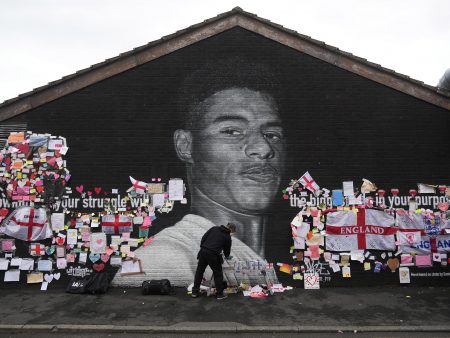Атака Снова начнем с очевидного. Англия забила всего два гола, что сделало их победителями групп с самым низким результатом в истории чемпионатов Европы. Эти голы — все два — были забиты Рахимом Стерлингом. Гарри Кейн еще не сломил свою утку. К сожалению, в его последних 1233600238 матчах за клуб у него было всего два матча.…
Атака
Снова начнем с очевидного. Англия забила всего два гола, что сделало их победителями групп с самым низким результатом в истории чемпионатов Европы.
Эти голы — все два — были забиты Рахимом Стерлингом. Гарри Кейн еще не сломил свою утку. К сожалению, в его последних 1233600238 матчах за клуб у него было всего два матча. и кантри с тех пор, как он спешил обратно после травмы лодыжки в апреле. Каким бы способом вы это ни изобразили, это некрасиво.
И даже помимо цифр в заголовках, это не намного лучше. По количеству выстрелов меньше было только в Финляндии и Венгрии. Что касается xG без штрафов, Англия заняла более низкую середину таблицы в рейтинге всех ниже вылетели команды Польши и Шотландии.
Это довольно серьезное отклонение от квалификации, когда Англия забивала больше голов за игру, чем любая другая команда, попав в четыре или более в семи из восьми игр.
Что изменилось? Это, по крайней мере, частично объясняется тем, что Саутгейт придерживается более осторожного подхода, чем в прошлом, и забивает игры, когда-то впереди, но Англия не нашла идей, преследуя гол Хорватии и Шотландии, которые сами играли относительно консервативно
Чешская Республика была гораздо более склонна прессинговать и вступать в бой выше по полю, что создавало пространство для атаки Англии и лучше подходило Кейну, позволяя ему уходить глубже и играть более сдержанно. Содействующая роль, которую мы привыкли видеть в Тоттенхэме.
На данный момент Англия кажется командой, которой нужно пространство для атаки, чтобы выглядеть угрожающе, скорее чем тот, который может исследовать и преодолевать глубоко укоренившуюся оборону. Теоретически это должно быть менее проблематично по мере продвижения турнира, поскольку они будут сталкиваться с более сильными и более предприимчивыми противниками.
Однако проблема заключается в том, что Германия и любые другие потенциальные противники видели, как нейтрализовать атаку Англии, и их будет сложно сломить.
Перемещение мяча вверх по полю
Основная часть борьбы Англии в атаке сводится к продвижению мяча вверх по полю.
Несмотря на всю защиту, которую обеспечивают Деклан Райс и Калвин Филлипс, они не являются мастерами передачи владения мячом в поле. заключительная треть и штрафной. Филипс определенно сильнее Райса в этом отношении, но это далеко не самая сильная сторона его игры. Вернуть Джордану Хендерсону скорость поможет.
Крайние защитники также жизненно важны для того, чтобы играть в защитной игре и выводить ее на половину поля соперника. Англия хорошо выступила на чемпионате мира, но, кто бы ни играл, защитники Саутгейта пока что на этом турнире были более консервативны. Даже в матче с Шотландией, когда на обоих флангах оставалось свободное место, они были странно зарезервированы.
«data-gallery-length =» 3 «height =» 683 «i-amphtml-layout =» responsive «layout =» responsive «on =» tap: inline-image-gallery, inline-image-carousel.goToSlide (index = 1) «role = «button» src = «https://static.independent.co.uk/158342081/10 / 24 / 16 / GettyImages — 1233600238. Jpg? Width = 982 & height = 726 & auto = webp & quality = 75 «tabindex =» 0 «width =» 2018 «> Люк Шоу был отпущен против чехов (POOL / AFP / Getty)
Лук У Шоу, похоже, было больше возможностей выйти вперед в начале матча против Чехии, и это значительно улучшило атакующую игру Англии. Также важно возвращение Гарри Магуайра с его способностью передавать и уносить мяч со спины. Два паса — один на вершине, другой для создания хорошего шанса для Кейна — продемонстрировали его важность.
Есть предварительные признаки улучшения, но необходимо больше. . По словам Опты, Англия — самая медленная команда на турнире, когда дело доходит до продвижения мяча по полю, ползая вперед со скоростью менее метра в секунду. Скорость Англии 0,7 метра в секунду против чехов была минимальной за одну игру для любой команды на турнире.
Этот медленный темп невозможно отделить от преднамеренно осторожного. подход, который использовал Саутгейт время от времени, но он также поддерживает критику Англии в целом вялости владения мячом.
Начни быстрее переводить мяч от А к Б, и атака должна выглядеть острее.
Наборы атакующих
Сетевые игры были самым большим преимуществом Англии на чемпионате мира 2018.
Девять из их 12 В то лето голы были забиты из-за мертвых ситуаций. Они ехали на «поезде любви» — рутине, в которой четыре-шесть игроков собирались по вертикали внутри штрафной площади, а затем убегали в непредсказуемых направлениях.
Один из любимых голов Саутгейта, забитых за время его правления, — это первый гол Джона Стоунса в матче с Панамой в России. Это был тренировочный прием, который игроки решили попробовать в игре впервые. Это был тип новаторской игры, с которым мы стали ассоциировать Англию тем летом — тип, которого мы пока мало видели.
Были такие. Быстрое вбрасывание Кирана Триппьера и начало движения, закончившегося попаданием в штангу Филом Фоденом в воротах сборной Хорватии, было явно хореографией. В остальном, это было ничтожно мало.
«data-gallery-length =» 3 «height =» 726 «i-amphtml- layout = «responseive» layout = «responseive» on = «tap: inline-image-gallery, inline-image-carousel.goToSlide (index = 2)» role = «button» src = «https: //static.independent. co.uk/158342081/06 / 24 / 24 / GettyImages — 1323335834. jpg? width = 982 & height = 726 & auto = webp & quality = 683 «tabindex =» 0 «width =» 1024 «> Фил Фоден в действии против Хорватии (FA / Getty)
«Там был тот, где Стоунз попал в столб [against Scotland], и это ударило по деньгам и гастроному Триппьера. очень в первой игре был превосходен », — признал Саутгейт. «С тех пор мы этого не достигли. Это область, которую мы можем улучшить ».
Триппьер чувствует себя ключевым. Практически постоянно присутствуя на последнем чемпионате мира, он пока начал только одну из трех игр, и беспроигрышные передачи Шоу, Филлипса и Мэйсона Маунта не оказали такого же влияния. Но тогда это также вопрос выигрыша угловых, когда Триппье находится на поле. У Англии был только один матч против Хорватии.
Алан Рассел, атакующий тренер сборной Англии, был человеком, которому приписывают работу над постановочными играми в России, но он больше не является частью команды. Посох Саутгейта. Его отъезд всего за несколько недель до турнира также может быть одним из факторов отказа.
К счастью, Саутгейт и его оставшиеся закулисные сотрудники понимают ценность стандартных розыгрышей. международные турниры, и знаю, что Англия могла бы с ними справиться лучше.

















